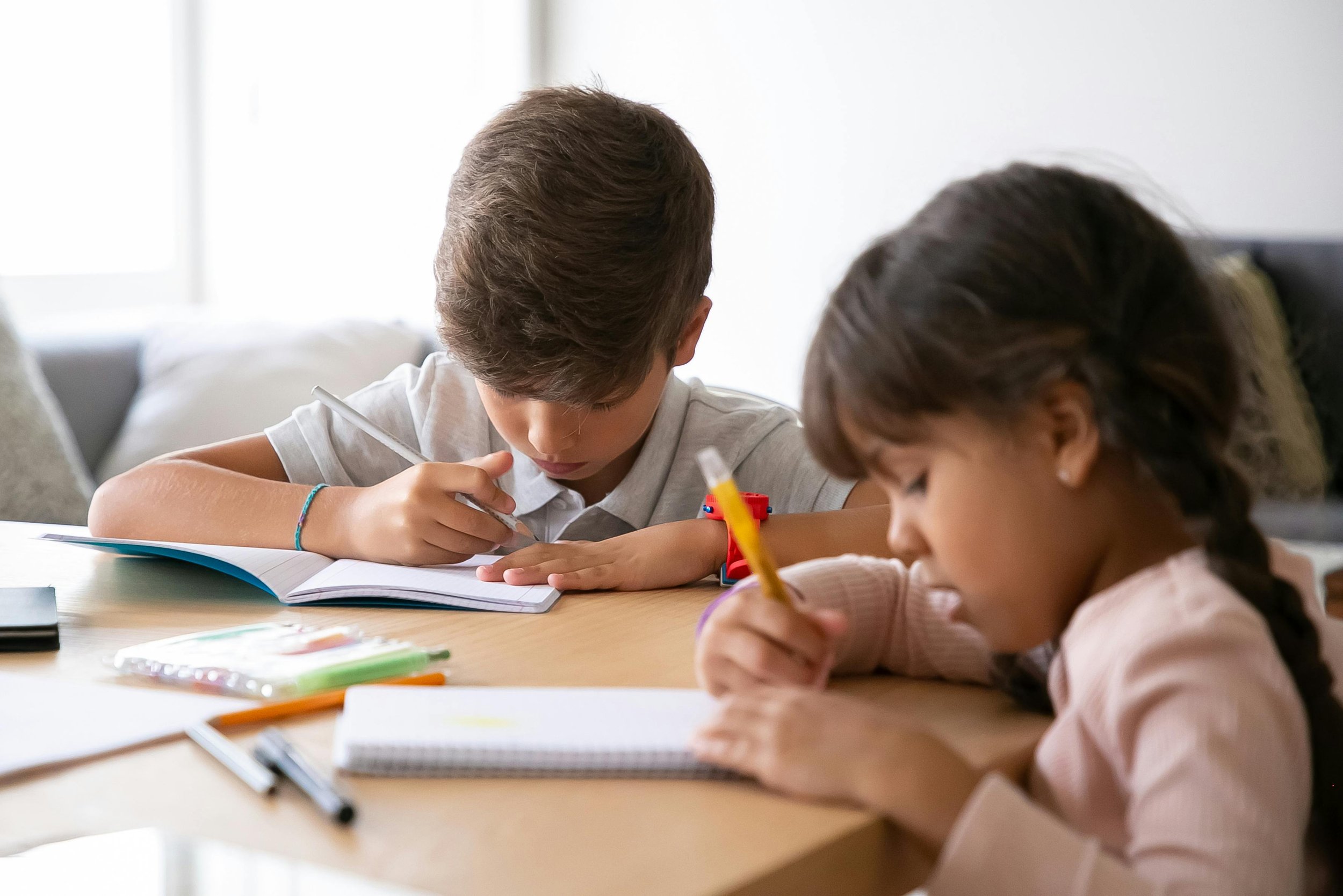
Little Explorers
Key elements and goals for K-2 education and curriculum at Golden Grove include:
Foundational Skills
Emphasizing basic literacy and numeracy skills through engaging and interactive activities that build confidence and competence.
2. Social-Emotional Development:
Promoting emotional intelligence, self-regulation, and interpersonal skills through collaborative projects and discussions.
3. Hands-On Learning: Incorporating experiential and play-based learning methods to make concepts tangible and enjoyable, fostering a love for learning.
4. Nature Integration: Encouraging outdoor exploration and nature-based activities that connect children with their environment and stimulate curiosity.
By focusing on these goals, Golden Grove works to create a nurturing and enriching environment for young learners, laying a strong foundation for their future education. This structure helps ensure that each grade level builds on the previous one while addressing the unique developmental needs of the students.
5. Creativity and Critical Thinking:
Providing opportunities for creative expression through art, music, and problem-solving tasks that enhance critical thinking skills.
6. Individualized Learning Plans:
Developing personalized learning paths that cater to each child’s interests and learning styles, ensuring they progress at their own pace.
7. Parental Involvement:
Engaging families in the learning process through regular communication, workshops, and activities that support learning at home.
8. Technology Literacy:
Introducing age-appropriate technology tools that enhance learning while teaching responsible use and digital citizenship.
Kindergarten
1. Foundational Skills:
- Focus on recognizing letters, sounds, and basic numbers through fun activities and games.
2. Social-Emotional Development:
- Encourage sharing, taking turns, and expressing feelings through group activities and storytelling.
3. Hands-On Learning:
- Use play-based activities and interactive centers to explore concepts like shapes, colors, and basic patterns.
4. Nature Integration:
- Organize outdoor exploration days where children can observe plants and animals, fostering curiosity about the natural world.
5. Creativity and Critical Thinking:
- Provide materials for open-ended art projects and simple problem-solving tasks that encourage creative thinking.
6. Individualized Learning Plans:
- Begin assessments to identify interests and strengths, creating a basic learning path for each child.
7. Parental Involvement:
- Host workshops for parents to learn how to support their child's learning at home and encourage family activities.
8. Technology Literacy:
- Introduce basic tech tools, like educational apps and interactive games, while ensuring a focus on limited screen time.
1st Grade
1. **Foundational Skills**:
- Strengthen reading and math skills with guided reading groups and hands-on math manipulatives.
2. **Social-Emotional Development**:
- Foster empathy and cooperation through team projects and discussions about feelings and relationships.
3. **Hands-On Learning**:
- Incorporate more structured play and experiments in science, allowing students to explore concepts actively.
4. **Nature Integration**:
- Implement nature walks and science projects that involve observing weather, seasons, and ecosystems.
5. **Creativity and Critical Thinking**:
- Encourage storytelling and imaginative play, along with simple logic games that promote critical thinking skills.
6. **Individualized Learning Plans**:
- Continuously assess progress and adjust learning plans, incorporating student interests into the curriculum.
7. **Parental Involvement**:
- Increase communication through regular updates and suggest activities that parents can do with their children at home.
8. **Technology Literacy**:
- Introduce more interactive digital tools while emphasizing safe and responsible online behavior.
2nd Grade
1. **Foundational Skills**:
- Focus on building fluency in reading and math through diverse literature and problem-solving activities.
2. **Social-Emotional Development**:
- Promote conflict resolution skills and self-awareness through role-playing and guided discussions.
3. **Hands-On Learning**:
- Engage students in projects that require research, collaboration, and presentation, such as science fairs or class exhibitions.
4. **Nature Integration**:
- Expand outdoor learning with projects like gardening or nature journaling, connecting curriculum to environmental awareness.
5. **Creativity and Critical Thinking**:
- Introduce more complex projects that require planning, creativity, and critical evaluation of ideas and solutions.
6. **Individualized Learning Plans**:
- Continue refining personalized learning paths, encouraging students to set and reflect on their own academic goals.
7. **Parental Involvement**:
- Involve parents in project-based learning, encouraging them to participate in presentations or showcase events.
8. **Technology Literacy**:
- Develop digital skills further with age-appropriate tools for research, presentations, and collaborative projects, maintaining a focus on responsible use.



